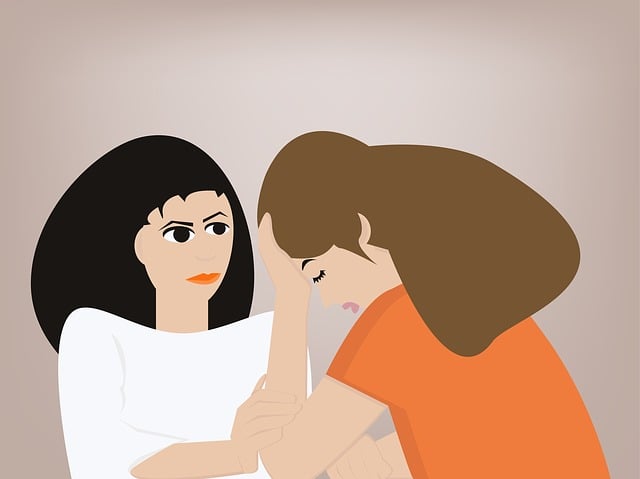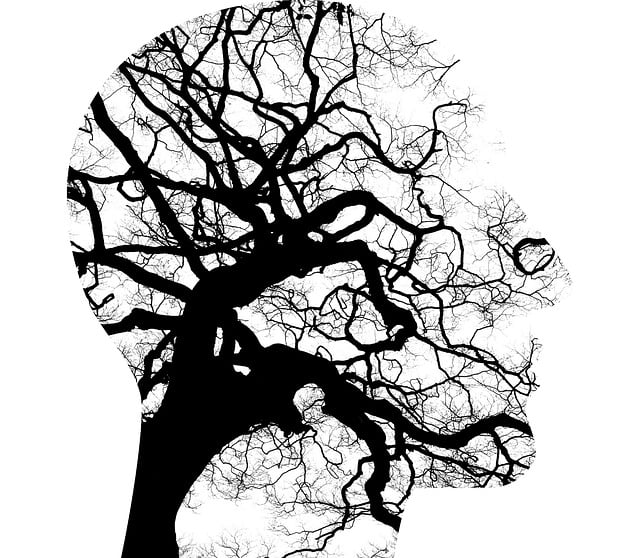Anxiety disorders, including GAD, PTSD, and others, significantly impact daily life but can be managed with strategies like Mindfulness Meditation and Cognitive Behavioral Therapy (CBT), as offered in Wheat Ridge Sexual Abuse Survivor Therapy. This evidence-based approach combines CBT with holistic techniques to empower individuals, reduce stress, promote healing, and build resilience through lifestyle changes and support systems. Specialized therapies cater to trauma survivors, combining CBT and social skills training for tailored care, ensuring personalized guidance for managing anxiety complexities.
Anxiety disorders are a prevalent mental health concern, affecting millions worldwide. This article guides you through effective anxiety management techniques, offering valuable insights for those seeking relief. We explore various approaches, including Cognitive Behavioral Therapy (CBT), mindfulness practices, and lifestyle changes. Understanding different anxiety types and symptoms is essential, especially for Wheat Ridge Sexual Abuse Survivor Therapy, where specialized care is crucial. By implementing these strategies, individuals can build resilience and reclaim control over their lives.
- Understanding Anxiety Disorders: Types and Symptoms
- Cognitive Behavioral Therapy (CBT): A Powerful Tool for Overcoming Anxiety
- Mindfulness and Relaxation Techniques for Daily Stress Management
- Building Resilience: Lifestyle Changes and Support Systems for Anxiety Relief
Understanding Anxiety Disorders: Types and Symptoms

Anxiety disorders are a group of mental health conditions characterized by feelings of excessive fear, worry, or unease. They can significantly impact an individual’s daily life and well-being. There are various types of anxiety disorders, each with its unique set of symptoms. For instance, Generalized Anxiety Disorder (GAD) involves persistent and excessive worry about everyday matters, while Panic Disorder is marked by recurrent and unexpected panic attacks. Social Anxiety Disorder, as the name suggests, causes intense fear in social situations, leading to avoidance behaviors. Post-Traumatic Stress Disorder (PTSD), often seen in Wheat Ridge Sexual Abuse Survivor Therapy, can develop after traumatic events, causing flashbacks, nightmares, and severe anxiety.
Recognizing the symptoms is a crucial step towards management. Common indicators include restlessness, fatigue, irritability, difficulty concentrating, muscle tension, and sleep disturbances. Individuals may also experience physical symptoms like rapid heartbeat, sweating, or dizziness during anxious episodes. Effective strategies to manage anxiety disorders involve integrating techniques such as Mindfulness Meditation, which fosters present-moment awareness and emotional regulation. Communication Strategies are vital for expressing feelings, especially in cases of cultural sensitivity within mental healthcare practices, ensuring tailored support for diverse populations.
Cognitive Behavioral Therapy (CBT): A Powerful Tool for Overcoming Anxiety

Cognitive Behavioral Therapy (CBT) has emerged as a powerful tool for individuals seeking to overcome anxiety and promote emotional well-being. This evidence-based approach focuses on identifying and changing negative thought patterns and behaviors that contribute to anxiety disorders. By working with a trained therapist, Wheat Ridge Sexual Abuse Survivor Therapy clients can learn effective coping skills development tailored to their unique needs.
CBT empowers individuals to challenge and reframe distorted thinking, build resilience, and enhance their confidence in managing anxiety symptoms. Through this process, they gain valuable insights into their triggers and develop strategies to navigate challenging situations more effectively. By integrating CBT techniques, Wheat Ridge Sexual Abuse Survivor Therapy offers a holistic approach that combines emotional well-being promotion techniques with the development of robust coping skills for long-term success.
Mindfulness and Relaxation Techniques for Daily Stress Management

In today’s fast-paced world, daily stress is a common challenge that can significantly impact mental and physical well-being, especially for individuals who have experienced trauma like sexual abuse in Wheat Ridge. Mindfulness and relaxation techniques offer powerful tools to combat this stress and promote healing. By focusing on the present moment and cultivating a sense of calm, individuals can develop inner strength and resilience. Simple practices such as deep breathing exercises, progressive muscle relaxation, and guided meditation help reduce anxiety and prevent burnout. These techniques not only enhance overall well-being but also foster better communication strategies, enabling survivors to express their needs and boundaries effectively.
Incorporating mindfulness into daily routines allows for continuous stress management. This approach empowers individuals to navigate life’s challenges with more clarity and composure. Moreover, it can be a valuable adjunct to therapy, supporting the healing process for Wheat Ridge sexual abuse survivors. Through regular practice, one can discover their inner strength, improve coping mechanisms, and create a more balanced and peaceful life.
Building Resilience: Lifestyle Changes and Support Systems for Anxiety Relief

Building resilience is a key aspect of managing anxiety effectively. Lifestyle changes play a significant role in this process. Engaging in regular physical activity, maintaining a balanced diet, and practicing adequate sleep hygiene can substantially reduce anxiety levels. These activities not only promote overall well-being but also enhance one’s ability to cope with stressful situations. Additionally, incorporating mindfulness techniques like meditation and deep breathing exercises into daily routines can help individuals regain control and foster a sense of calm.
Support systems are equally vital for anxiety relief. Connecting with friends, family, or support groups can provide a strong safety net. Sharing experiences and emotions with others who understand can reduce feelings of isolation. For those who have experienced trauma, such as sexual abuse, specialized therapy like Wheat Ridge Sexual Abuse Survivor Therapy offers tailored approaches combining cognitive behavioral therapy (CBT) and social skills training to address underlying issues. By adopting these strategies, individuals can develop mind over matter principles that empower them to manage their anxiety more effectively. Furthermore, seeking professional help through risk assessment for mental health professionals ensures personalized care and guidance in navigating the complexities of anxiety disorders.
Anxiety disorders are treatable, and with the right techniques, individuals can effectively manage their symptoms. By combining evidence-based approaches like Cognitive Behavioral Therapy (CBT) and integrating mindfulness practices into daily routines, one can cultivate resilience and enhance overall well-being. For those in need of specialized support, Wheat Ridge Sexual Abuse Survivor Therapy offers tailored strategies to address complex anxiety rooted in trauma. Embracing these management techniques empowers individuals to take control of their mental health and lead fulfilling lives.










